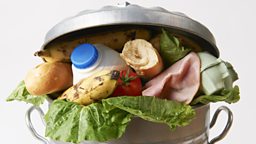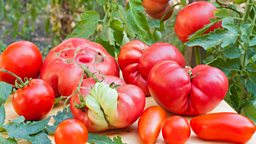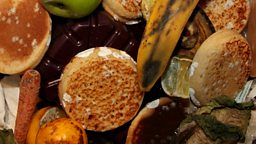How To Make Money From Food Waste
Six ingenious ways people are making money out of food waste
Worldwide, around 1.3 billion tonnes of food is wasted each year. But as Tanya Beckett discovers in The Business of Food Waste, astute entrepreneurs are finding increasingly imaginative ways to transform our old, unwanted or surplus food into profit. So, in the right hands, your half-eaten sandwich or over-ripe raspberries could actually be a valuable resource.

1. Turning food waste into fuel
Around a quarter of all the food we buy goes to waste. But while a mouldy apple or out-of-date yoghurt may not be much use to you, an anaerobic digester could convert them into fuel to heat your office in less than 24 hours. An increasing number of hotels and businesses are installing biomass heating systems based on this technology, while waste management companies are generating sustainable energy on an industrial scale using organic waste from homes and the food industry.
2. Selling 'ugly' fruit and veg at bargain prices
In Britain, up to 40% of the fruit and vegetables farmers produce are rejected by retailers because their size, shape or appearance doesn't meet strict standards. But waste-conscious start-ups and some supermarkets are ensuring that these undersized, odd-looking or unusually-proportioned groceries still reach people's plates. Social enterprises are springing up that deliver locally-produced 'ugly' fruit and vegetables straight to people's doorsteps at discounts of up to 50%. And it seems that wonky stuff sells, with supermarkets including Asda, Tesco and Morrisons getting in on the act too.

3. Transforming rotten food into insect protein
UK start-up Entomics aims to reduce food waste, protect the environment and turn a profit with the help of one small creature: the fly. The company plans to use rotting food waste to feed and breed fly larvae, which can be used as a high-protein food source for birds, fish and pets, or turned into fertiliser and bio-oil.
This 'nutrient recycling' process may sound a bit icky, but as well as decreasing waste it has the potential to reduce the amount of land that's used to grow soya and other crops for animal feed, making it doubly good for the environment.
4. Creating in-demand products from unwanted items
A growing number of businesses are transforming unsold or unsellable foods into dishes people will pay premium prices for. Sustainable start-up Spare Fruit has so far turned 15 tonnes of excess, oddly shaped or imperfect apples and pears into healthy crisps. Rubies in the Rubble has saved over 85,000 items of fruit and veg from going into landfill by making them into sauces and pickles. And with 44% of bread baked in the UK going uneaten, brewers Toast Ale have made more than 60,000 bottles of beer using surplus loaves and crusts.

5. Extracting pigments
Ever wondered where dyes and colourants come from? In future, the answer could be food waste. Start-up company Celbius is investigating ways of extracting pigments from unwanted organic matter using a combination of enzymes and ultrasound. The process uses less energy and fewer chemicals than other methods, and could supply colourants for use in food products or cosmetics.
6. Helping leftovers find a new home
A new food-sharing app is making it easy to find a home for everything from extra aubergines to leftover lasagne. Olio enables you to advertise spare food to people in your local area, and arrange for them to come and collect it. The app is free to download and use, but its owners hope to turn a profit through advertising, partnerships and donations.
The social enterprise Too Good To Go offers a similar service for restaurants, enabling them to advertise leftovers at knockdown prices and prevent meals going to waste. Customers can find chef-cooked food for as little as £2, and the app has saved over a million meals so far across Europe.
More from BBC Radio 4
How To Make Money From Food Waste
Source: https://www.bbc.co.uk/programmes/articles/4KDk7chwSby8btrnN3cbX1X/six-ingenious-ways-people-are-making-money-out-of-food-waste
Posted by: fischerporybouted.blogspot.com

0 Response to "How To Make Money From Food Waste"
Post a Comment